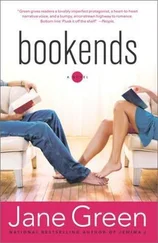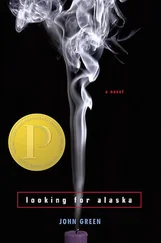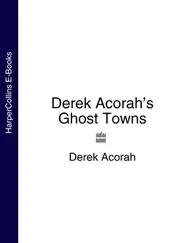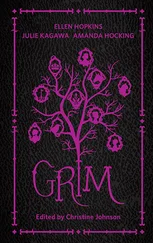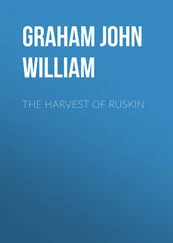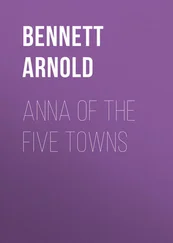I lay there with the her-scented blanket for a while, staring up at the ceiling. I could see a sliver of late-afternoon sky through a crack in the roof, like a jagged canvas painted a bright blue. This would be the perfect place to sleep: one could see stars at night without getting rained on.
I called my parents to check in. My dad answered, and I said we were in the car on the way to meet Radar and Angela, and that I was staying with Ben overnight. He told me not to drink, and I told him I wouldn’t, and he said he was proud of me for going to prom, and I wondered if he would be proud of me for doing what I was actually doing.
This place was boring. I mean, once you got past the rodents and the mysterious the-building-is-falling-apart groans in the walls, there wasn’t anything to do . No Internet, no TV, no music. I was bored, so it again confused me that she would pick this place, since Margo always struck me as a person with a very limited tolerance for boredom. Maybe she liked the idea of slumming it? Unlikely. Margo wore designer jeans to break into SeaWorld.
It was the lack of alternative stimuli that led me back to “Song of Myself,” the only certain gift I had from her. I moved to a water-stained patch of concrete floor directly beneath the hole in the ceiling, sat down cross-legged, and angled my body so the light shone upon the book. And for some reason, finally, I could read it.
The thing is that the poem starts out really slowly — it’s just sort of a long introduction, but around the ninetieth line, Whitman finally starts to tell a bit of a story, and that’s where it picked up for me. So Whitman is sitting around (which he calls loafing) on the grass, and then:
A child said, What is the grass? fetching it to me with full
hands;
How could I answer the child?. . . I do not know what
it is any more than he.
I guess it must be the flag of my disposition, out of hopeful
green stuff woven.
There was the hope Dr. Holden had talked about — the grass was a metaphor for his hope. But that’s not all. He continues,
Or I guess it is the handkerchief of the Lord,
A scented gift and remembrancer designedly dropped,
Like grass is a metaphor for God’s greatness or something. .
Or I guess the grass is itself a child. .
And then soon after that,
Or I guess it is a uniform hieroglyphic,
And it means, Sprouting alike in broad zones and narrow
zones,
Growing among black folks as among white.
So maybe the grass is a metaphor for our equality and our essential connectedness, as Dr. Holden had said. And then finally, he says of grass,
And now it seems to me the beautiful uncut hair of graves.
So grass is death, too — it grows out of our buried bodies. The grass was so many different things at once, it was bewildering. So grass is a metaphor for life, and for death, and for equality, and for connectedness, and for children, and for God, and for hope.
I couldn’t figure out which of these ideas, if any, was at the core of the poem. But thinking about the grass and all the different ways you can see it made me think about all the ways I’d seen and mis-seen Margo. There was no shortage of ways to see her. I’d been focused on what had become of her, but now with my head trying to understand the multiplicity of grass and her smell from the blanket still in my throat, I realized that the most important question was who I was looking for. If “What is the grass?” has such a complicated answer, I thought, so, too, must “Who is Margo Roth Spiegelman?” Like a metaphor rendered incomprehensible by its ubiquity, there was room enough in what she had left me for endless imaginings, for an infinite set of Margos.
I had to narrow her down, and I figured there had to be things here that I was seeing wrong or not seeing. I wanted to tear off the roof and light up the whole place so that I could see it all at once, instead of one flashlight beam at a time. I put aside Margo’s blanket and shouted, loud enough for all the rats to hear, “I Am Going To Find Something Here!”
I went through each desk in the office again, but it seemed more and more obvious that Margo had used only the desk with the nail polish in the drawer and the calendar set to June.
I ducked through a Troll Hole and made my way back to the library, walking again through the abandoned metal shelves. On each shelf I looked for dustless shapes that would tell me Margo had used this space for something, but I couldn’t find any. But then my darting flashlight happened across something atop the shelf in a corner of the room, right near the boarded-up storefront window. It was the spine of a book.
The book was called Roadside America: Your Travel Guide , and had been published in 1998, after this place had been abandoned. I flipped through it with the flashlight crooked between neck and shoulder. The book listed hundreds of attractions you could visit, from the world’s largest ball of twine in Darwin, Minnesota, to the world’s largest ball of stamps in Omaha, Nebraska. Someone had folded down the corners of several seemingly random pages. The book wasn’t too dusty. Maybe SeaWorld was only the first stop on some kind of whirlwind adventure. Yes. That made sense. That was Margo. She found out about this place somehow, came here to gather her supplies, spent a night or two, and then hit the road. I could imagine her pinballing among tourist traps.
As the last light fled from the holes in the ceiling, I found more books above other bookshelves. The Rough Guide to Nepal; The Great Sights of Canada; America by Car; Fodor’s Guide to the Bahamas; Let’s Go Bhutan . There seemed to be no connection at all among the books, except that they were all about traveling and had all been published after the minimall was abandoned. I tucked the Maglite under my chin, scooped up the books into a stack that extended from my waist to my chest, and carried them into the empty room I was now imagining as the bedroom.
So it turned out that I did spend prom night with Margo, just not quite as I’d dreamed. Instead of busting into prom together, I sat against her rolled-up carpet with her ratty blanket draped over my knees, alternately reading travel guides by flashlight and sitting still in the dark as the cicadas hummed above and around me.
Maybe she had sat here in the cacophonous darkness and felt some kind of desperation take her over, and maybe she found it impossible to unthink the thought of death. I could imagine that, of course.
But I could also imagine this: Margo picking these books up at various garage sales, buying every travel guide she could get her hands on for a quarter or less. And then coming here — even before she disappeared — to read the books away from prying eyes. Reading them, trying to decide on destinations. Yes . She would stay on the road and in hiding, a balloon floating through the sky, eating up hundreds of miles a day with the help of a perpetual tailwind. And in this imagining, she was alive. Had she brought me here to give me the clues to piece together an itinerary? Maybe. Of course I was nowhere near an itinerary. Judging from the books, she could be in Jamaica or Namibia, Topeka or Beijing. But I had only just begun to look.
In my dream, her head was on my shoulder as I lay on my back, only the corner of carpet between us and the concrete floor. Her arm was around my rib cage. We were just lying there, sleeping.
God help me. The only teenaged guy in America who dreams of sleeping with girls, and just sleeping with them. And then my phone rang. It took two more rings before my fumbling hands found the phone lying on the unrolled carpet. It was 3:18 A.M. Ben was calling.
Читать дальше

